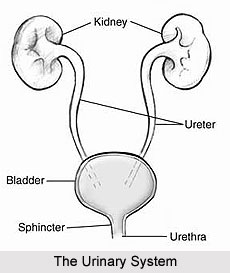 Causes of urinary disorders can be categorized according to gender, age and most importantly the hygiene. There are some basic reasons behind the development of the urinary diseases.
Causes of urinary disorders can be categorized according to gender, age and most importantly the hygiene. There are some basic reasons behind the development of the urinary diseases.
According to the medical research, females are more prone to develop urinary disorders than men. The sexually active teen girls and young, pregnant women produce much estrogen than the post-menopausal women which increases the likelihood of UTI. Seniors more often experience urinary incontinence, which increases the risk of urinary diseases.
Children are much less likely develop UTI, but because it could indicate an anatomical abnormality, children with UTI are usually further tested. Another important and strong risk factor of urinary disorders is sexual activity in which trace amounts of the partner`s urine could be introduced into the urinary tract as a result of vaginal intercourse. Moreover, the likelihood for infection increases with the use of a diaphragm or spermicidal jelly which kills not only sperm but also protective bacteria that can ward off infection-causing bacteria. Even the changes of urinary system during pregnancy can increase the risks of UTI as several complications occurs during pregnancy like women in their first pregnancy, women who have diabetes or sickle cell trait, women who engage in sexual activity during the pregnancy and women who`ve had such infections earlier.
In addition to that, diabetes, people with enlarged prostate, bowel incontinence and Kidney stones increase the risk of the causes of urinary disorders. The main urinary tract infection is caused by E.coli, the bacteria from the bowel. On the other hand a venereal wart has a viral nature, urethritis is related to infection. As bacteria can enter the urinary tract through the urethra (an ascending infection), poor toilet habits can prompt to infection. While ascending infections are generally the rule for lower urinary tract infections and cystitis. The same may not necessarily be true for upper urinary tract infections like pyelonephritis which may be hematogenous in origin.
Allergies also can be a hidden factor in causing urinary tract infections as allergies to foods can irritate the bladder wall and increase susceptibility to urinary tract infections. Urinary tract infections after sexual intercourse can also be due to an allergy to latex condoms, spermicides, or oral contraceptives. In males, frequent masturbation could also lead to the buildup of the bacteria if they are not urinated out of the urinary tract after masturbating. Another major cause of urinary disorder is indwelling urinary catheters in women and men who are elderly, over placement of a temporary prostatic stent. Also, people experiencing nervous system disorders, people who are convalescing or unconscious for long periods of time, may have an increased risk of urinary tract infection. Elderly men and women are more likely to harbor bacteria in their genitourinary system at any time.
Apart from all these causes of urinary disorders, there are some additional reasons that augment the infections of urinary disorders such as Klebsiella, Enterobacter (Aerobacter) infection, Staphylococcus aureus infection, Antibiotic resistant E Coli infection, Brucellosis, Citrobacter infection, Proteus or Indol positive Proteus infection, Pseudomonas infection, Serratia infection, Enterococcus or Streptococcus fecalis, Schistosomiasis, bladder, Schistosomiasis, hematobium, Poliomyelitis, paralytic and bulbar.
The causes of urinary disorders are basically related to bacteria that infect the organs and reason the severity of the disease. Since ancient times, several natural therapies are recommended for treating diseases and urinary diseases as well. The prevention of the urinary disorder may include maintaining proper hygiene and health with some regular medical check ups.




















